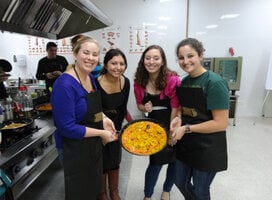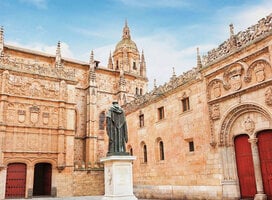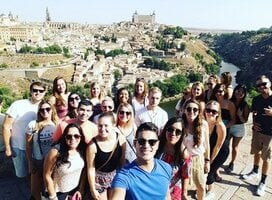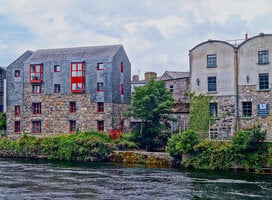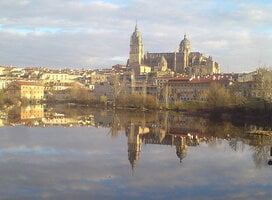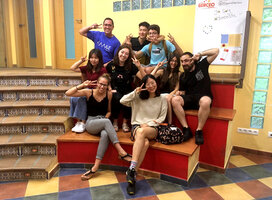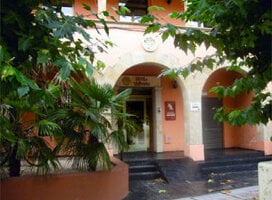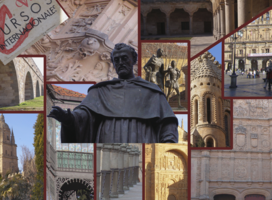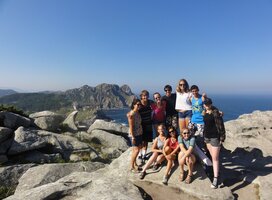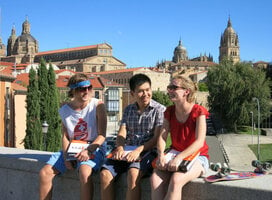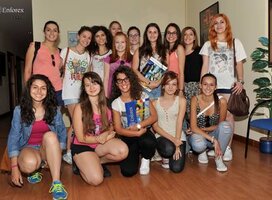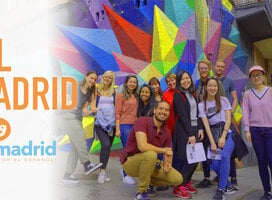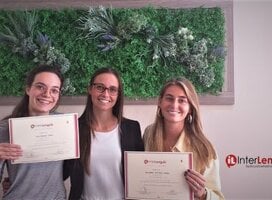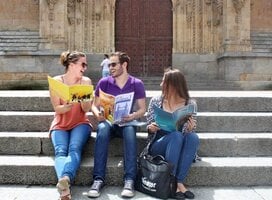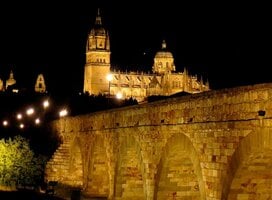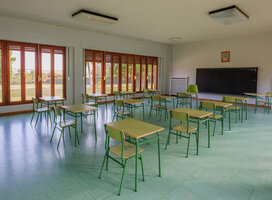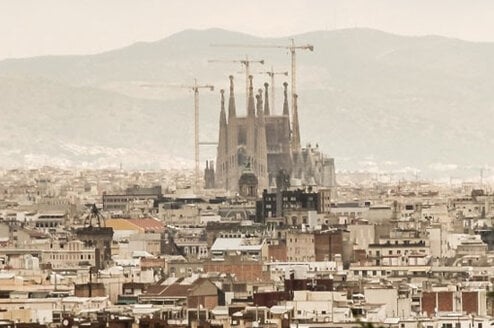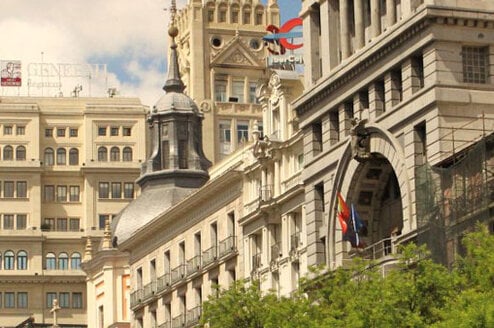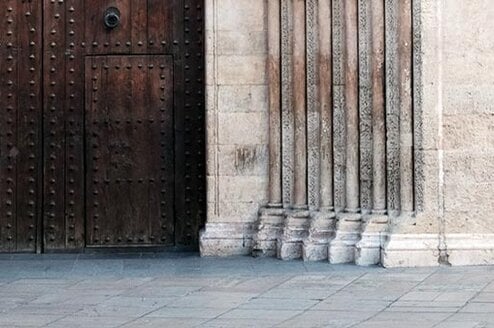Study Abroad Programs in Salamanca
Nicknamed la ciudad dorada (the golden city) for the sandstone buildings that are located within the walls of the Old City, Salamanca is widely considered to be the place where the most “pure” variation of Spanish is spoken. It may be for this reason alone that many Spanish and international students choose to study at the Universidad de Salamanca, founded in 1218.
Located about two hours and a half from the capital Madrid, this medium-sized Spanish city does not attract the hordes of tourists found in Barcelona or Madrid, making it all the more unique and immersive for study abroad students.
The city especially comes alive in September during its feria season and in April during its Semana Santa (Holy Week) religious processions. For those that might want to explore beyond Salamanca, its close proximity to Portugal and to the cities of Avila, Ciudad Rodrigo, Zamora, Valladolid, and Madrid all make for ideal day or weekend trips.
Culture and Immersion
In the heart of the Old City lies the Plaza Mayor, a popular hangout spot for local salmantinos and students alike. Bullfights used to be held there up until the 19th century. Today, instead of running away from bulls, people flock to the restaurants and tourist shops that line the plaza’s archways. Long believed to be the most beautiful plaza in Spain, the Plaza Mayor is especially impressive at night when it is illuminated. Unsurprisingly, most of Salamanca’s nightlife is centered around the Plaza Mayor. Because Salamanca is essentially a college town, there is a plethora of bars and discotecas to choose from, making it very easy to meet fellow students.
Aside from the legendary nightlife, Salamanca boasts an imposing “new” and “old” cathedral which dominate the Old City skyline. Construction on the “new” cathedral started in 1513 and took more than 200 years, while the “old” cathedral is much smaller and dates from the 12th century (the “new cathedral” was built onto the “old cathedral” so it all looks like one big cathedral from the outside). Other places of note are the Casa de las Conchas (House of Shells), a building adorned with over 300 scallop shells on its façade that today houses the public library, and Casa Lis, an eclectic and funky museum that houses a variety of exhibits centered on “art nouveau.”
Also, if you are an avid birdwatcher, you will get plenty of opportunities to observe the storks that build their nests and roost on top of nearly every tall building in Salamanca, adding to the city’s charm.
Spain’s currency is the euro and it is always a good idea to take into account the exchange rate when trying to estimate how much money you think you will spend while studying abroad. The cost of living in Salamanca is not as high as Madrid or Barcelona since it is a smaller city. For example, you will probably not be spending a lot of money on transportation since Salamanca is mostly a pedestrian city. It also all depends on you as a person—you may want to travel a lot, you may want to take advantage of the Salamanca nightlife, or you may want to join a gym. Think about what you think you will be spending your money on and budget accordingly.
If you think you can’t study abroad because you are finding it to be too expensive, then think again! There are a number of scholarships you can check out for studying in Salamanca:
- ISA offers the Dr. Carlos E. Castañada Memorial Scholarship, a financial and merit-based scholarship for students who attend ISA-affiliated universities.
- AIFS has a variety of scholarships available, including merit-based, financial aid, and those committed to diversity.
- API has many scholarships to choose from that are applicable for their programs in Salamanca.
- More Study Abroad Grants and Scholarships
Study Abroad Programs in Salamanca
What People Are Saying
Related Study Abroad Articles
Frequently Asked Questions
-
Is it safe to live in Spain?
Spain is a very safe country. But, just like the rest of Europe, Spain is notorious for pickpockets. It's important to not carry your passport around and always keep an eye on your phone!
-
How long does it take to get a Spain student visa?
Processing your visa application takes the consulate about 4 weeks. The most lengthy part of the process is collecting all of the documents and securing an appointment. For some consulates it is very difficult to secure an appointment, so it is best to plan ahead.
The documents needed to apply for a student visa are:
- National visa application form + photocopy
- Original passport + photocopy
- One recent passport sized photo (to be attached to the form)
- Copy of the acceptance letter from the Spanish University (in Spanish or with Spanish translation)
- Evidence of funds (could be a statement from the University describing housing or a notarized letter from your parents assuming financial responsibility)
- Proof of health insurance
- Medical certificate (only need for stays longer than 180 days)
- Express mail envelope with pre-paid stamps addressed to yourself with which the consulate may return your passport with the visa
Related Content

